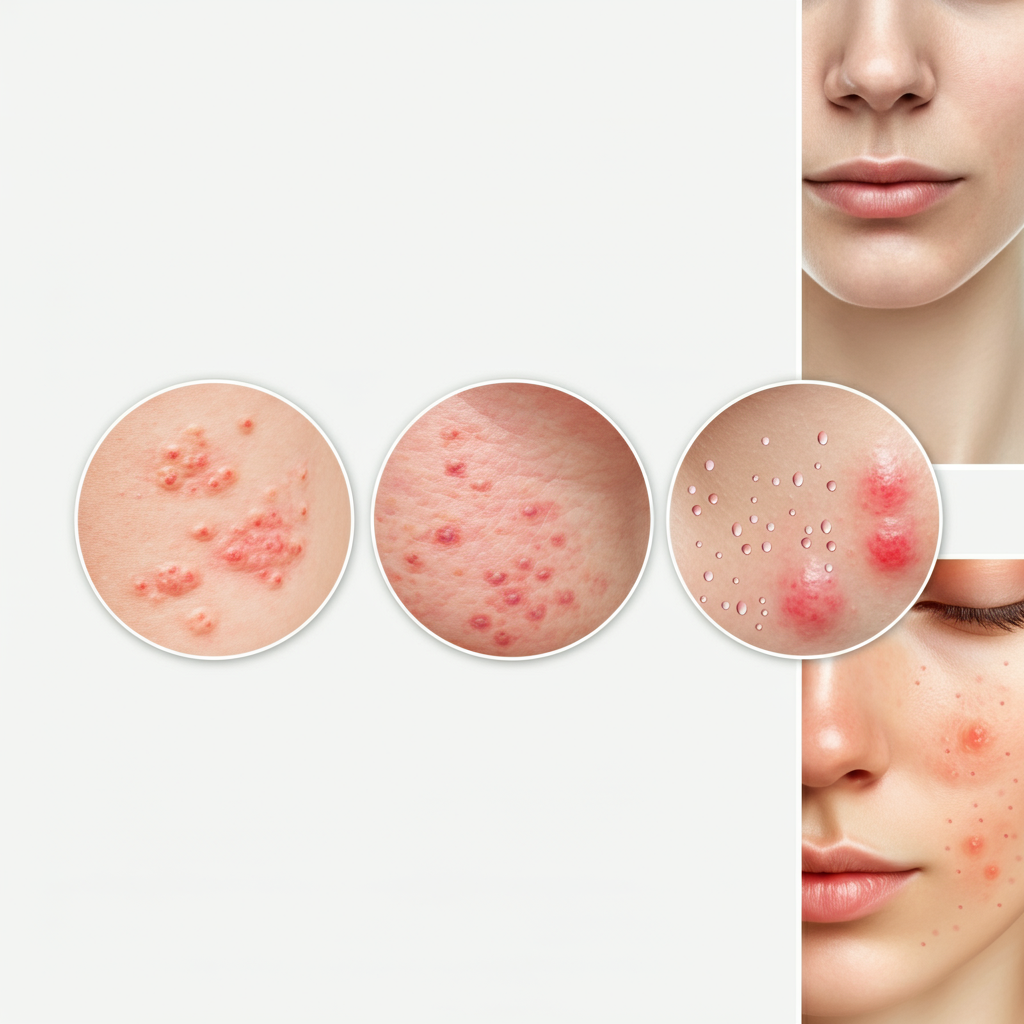Red spots on the skin can be unsettling, leaving many of us wondering, “What caused these?” They range from tiny, harmless dots to itchy or painful patches that disrupt comfort and confidence. While some causes are minor and temporary, others might signal a more serious health condition.
Understanding the root cause of red spots is the first step toward effective treatment and prevention. This guide dives into ten common culprits, offers actionable solutions, and provides expert insights to help you maintain healthy, radiant skin.
Common Causes of Red Spots on the Skin
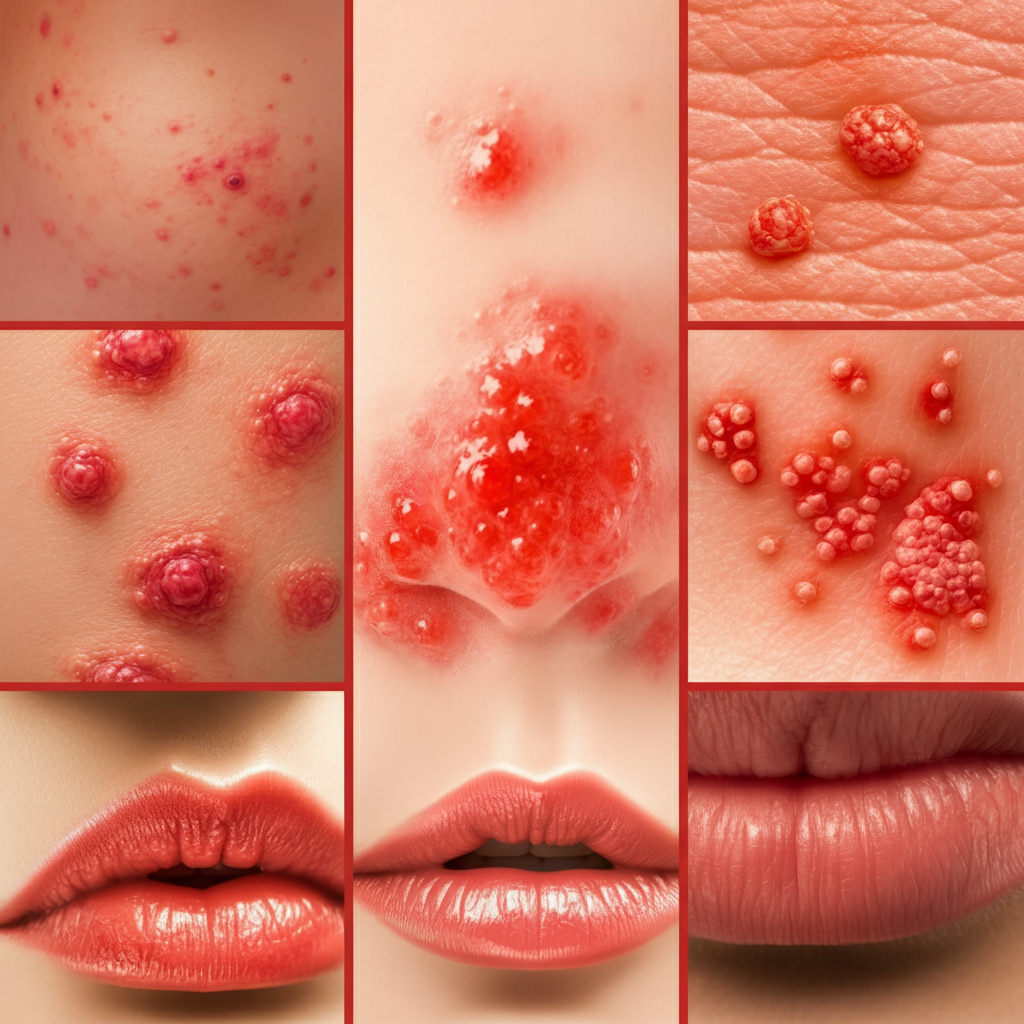
1. Acne
Acne is one of the most widespread skin conditions, affecting millions of people worldwide. Most commonly seen on the face, chest, and back, acne appears as red spots that can be inflamed or pus-filled (like cysts or papules).
Symptoms and Causes:
- Whiteheads, blackheads, cysts, and nodules.
- Triggered by excess oil production, clogged pores, or hormonal changes.
Treatment:
- Over-the-counter products containing salicylic acid or benzoyl peroxide.
- Prescription treatments like retinoids or antibiotics.
- Lifestyle changes like avoiding pore-clogging products and maintaining a healthy diet.
2. Eczema (Atopic Dermatitis)
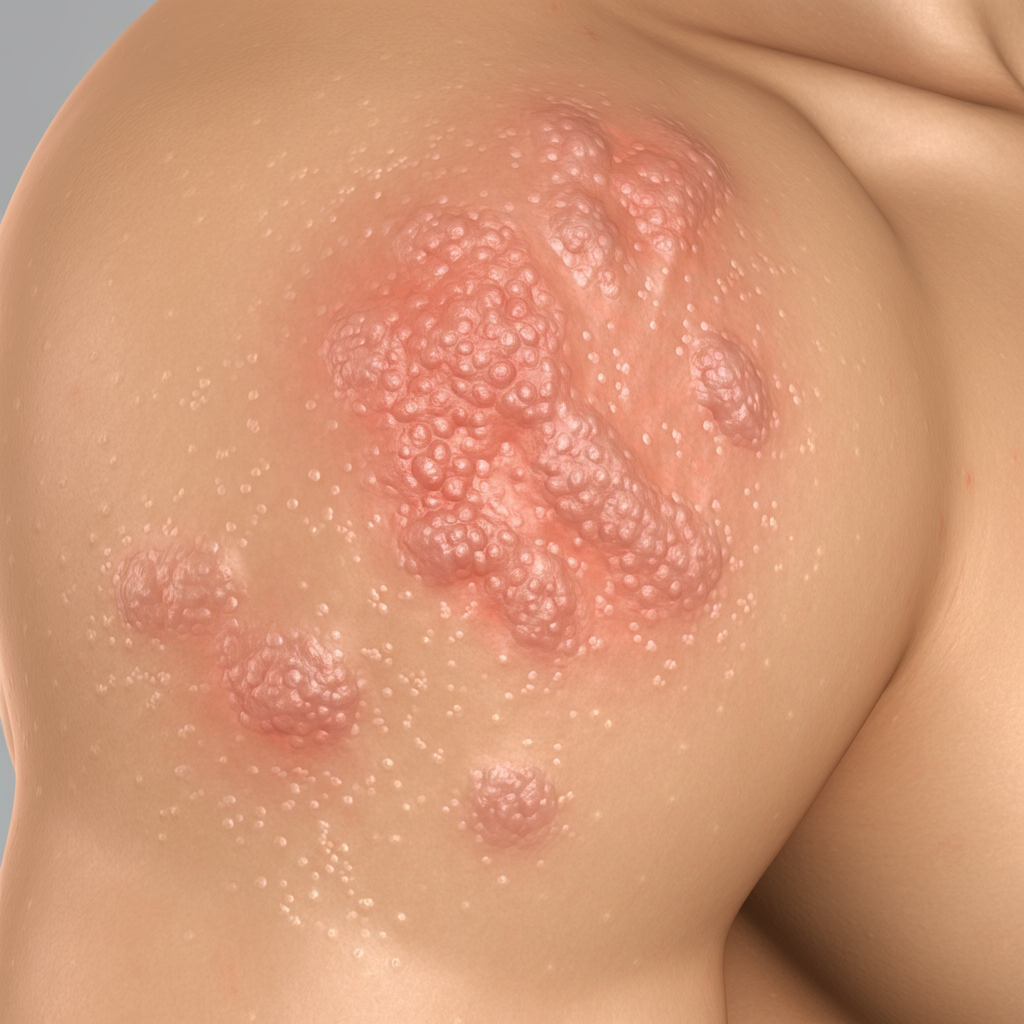
Eczema presents as dry, itchy patches often accompanied by red, inflamed spots. It’s chronic and tends to flare up due to environmental triggers or irritants.
Common Triggers:
- Allergens, detergents, stress, or weather changes.
Management Tips:
- Moisturize regularly with fragrance-free creams.
- Use anti-itch creams like hydrocortisone.
- Identify and avoid triggers.
3. Psoriasis
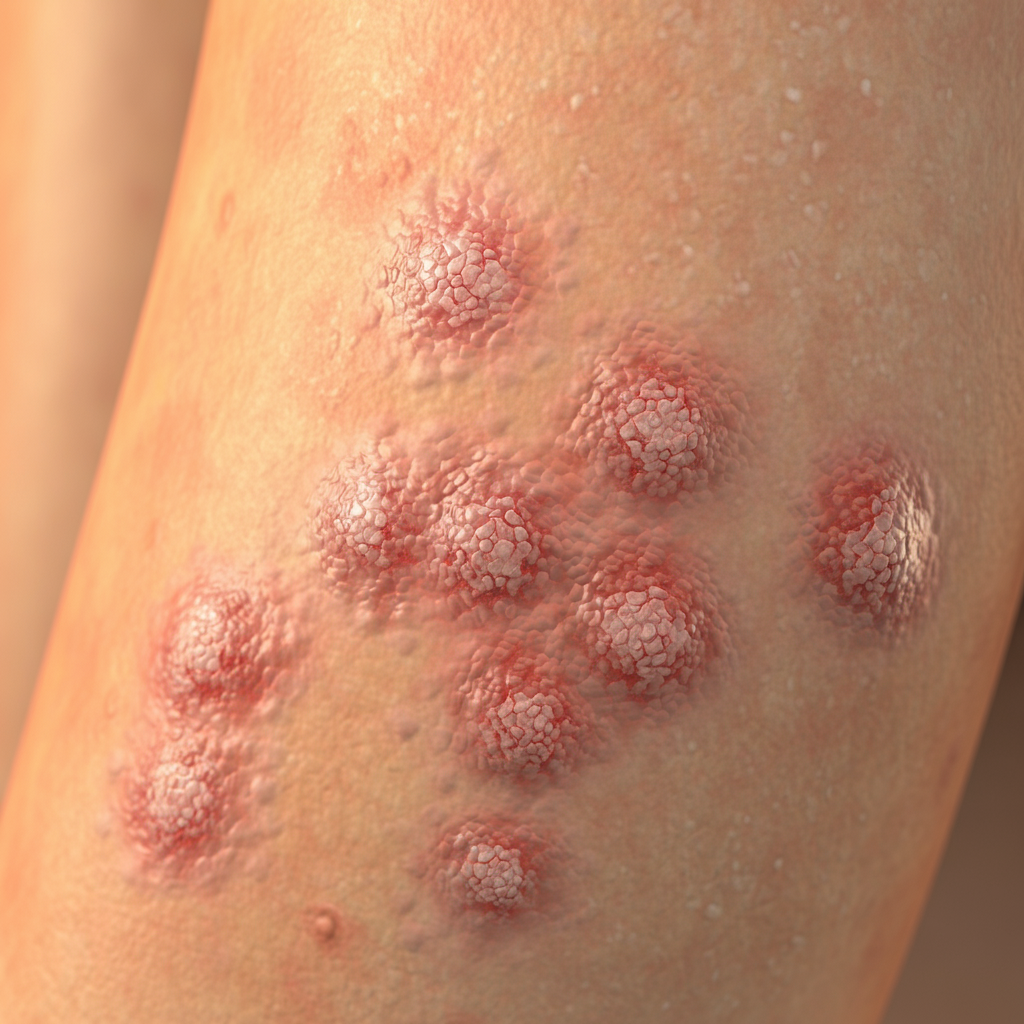
Psoriasis is characterized by thick, scaly patches of skin that often appear red and inflamed. This autoimmune condition accelerates skin cell turnover, causing a build-up of skin layers.
Types:
- Plaque psoriasis (most common), guttate, pustular, etc.
Treatment:
- Prescription creams, light therapy, or biologic medications.
- Avoiding triggers like stress and alcohol.
4. Rosacea
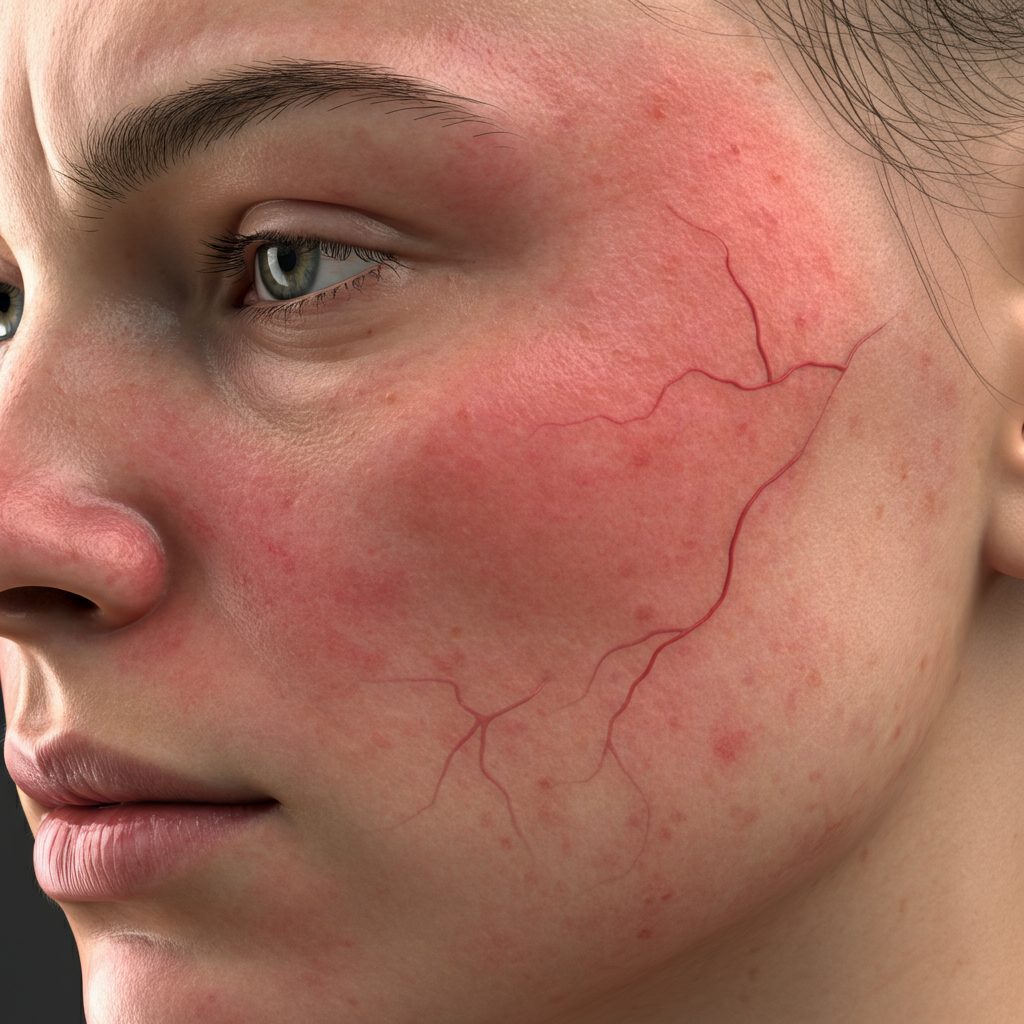
Rosacea is a chronic skin condition that often manifests as facial redness, tiny bumps, and visible blood vessels. Often mistaken for acne, rosacea is triggered by things such as spicy foods, alcohol, or extreme temperatures.
Management:
- Gentle skincare routines.
- Topical treatments like metronidazole or azelaic acid.
- Avoid known triggers.
5. Allergic Reactions
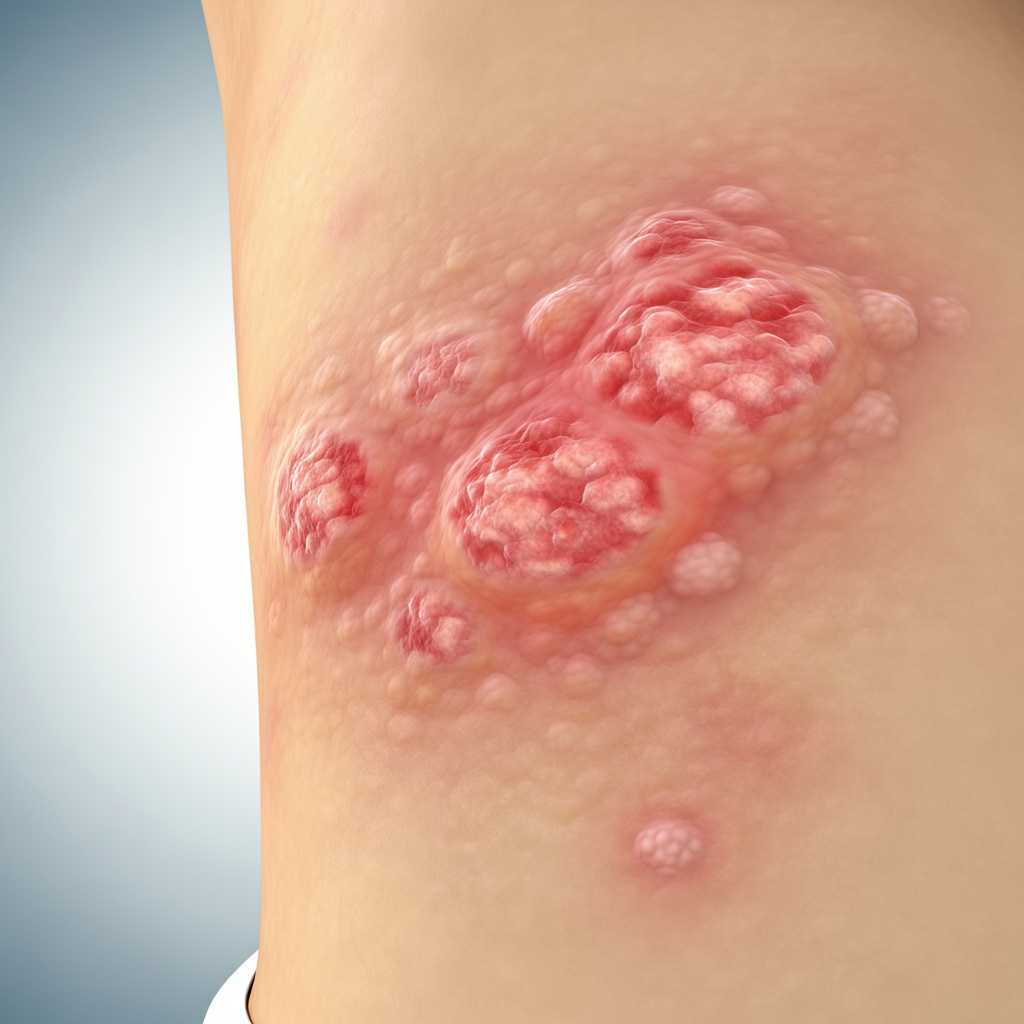
When your immune system overreacts to a substance, allergic reactions can create red, itchy spots. These are usually caused by contact with allergens or ingestion of certain foods.
Common Allergens:
- Pollen, fragrances, latex, certain foods like nuts or shellfish.
Treatment:
- Antihistamines to reduce allergic responses.
- Avoiding or removing the allergen wherever possible.
6. Hives (Urticaria)
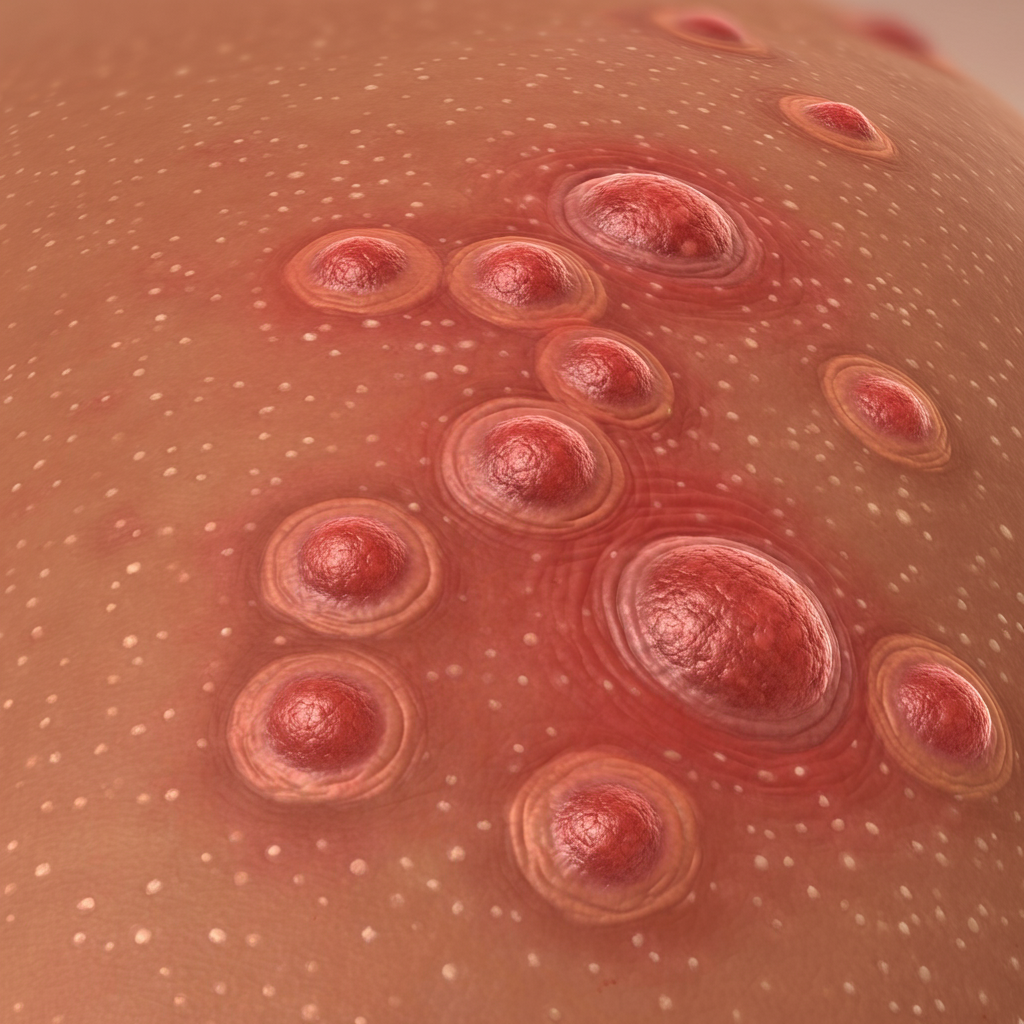
Hives are raised, itchy welts that appear suddenly and may last hours or days. They are commonly linked to allergic reactions but can also result from heat, stress, or certain medications.
How to Treat Hives:
- Apply a cold compress to soothe itching.
- Use antihistamines like loratadine or cetirizine.
7. Chickenpox
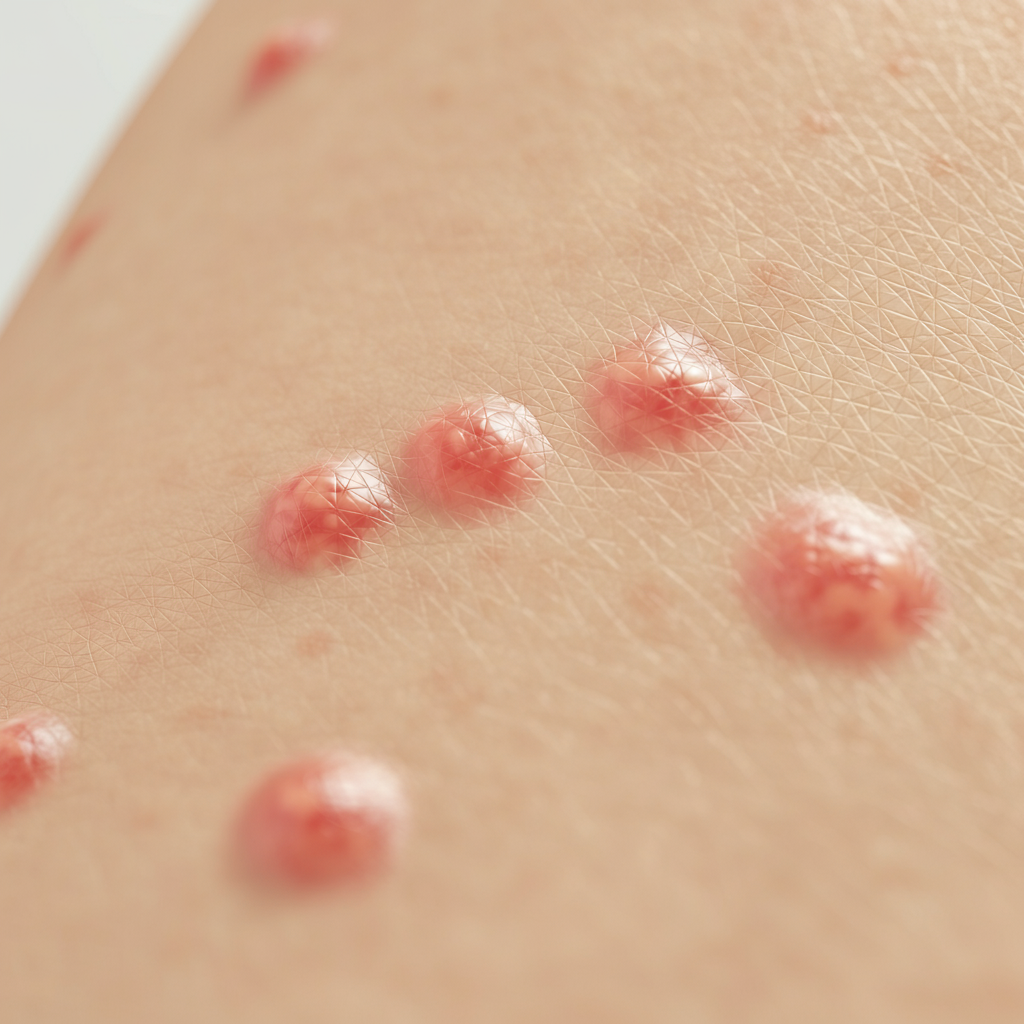
Known mainly as a childhood illness, chickenpox causes clusters of red, itchy spots that blister over time. It’s highly contagious and usually accompanied by fever and fatigue.
Prevention and Management:
- Vaccination is the best prevention.
- Calamine lotion or cool baths can help soothe itching.
8. Measles
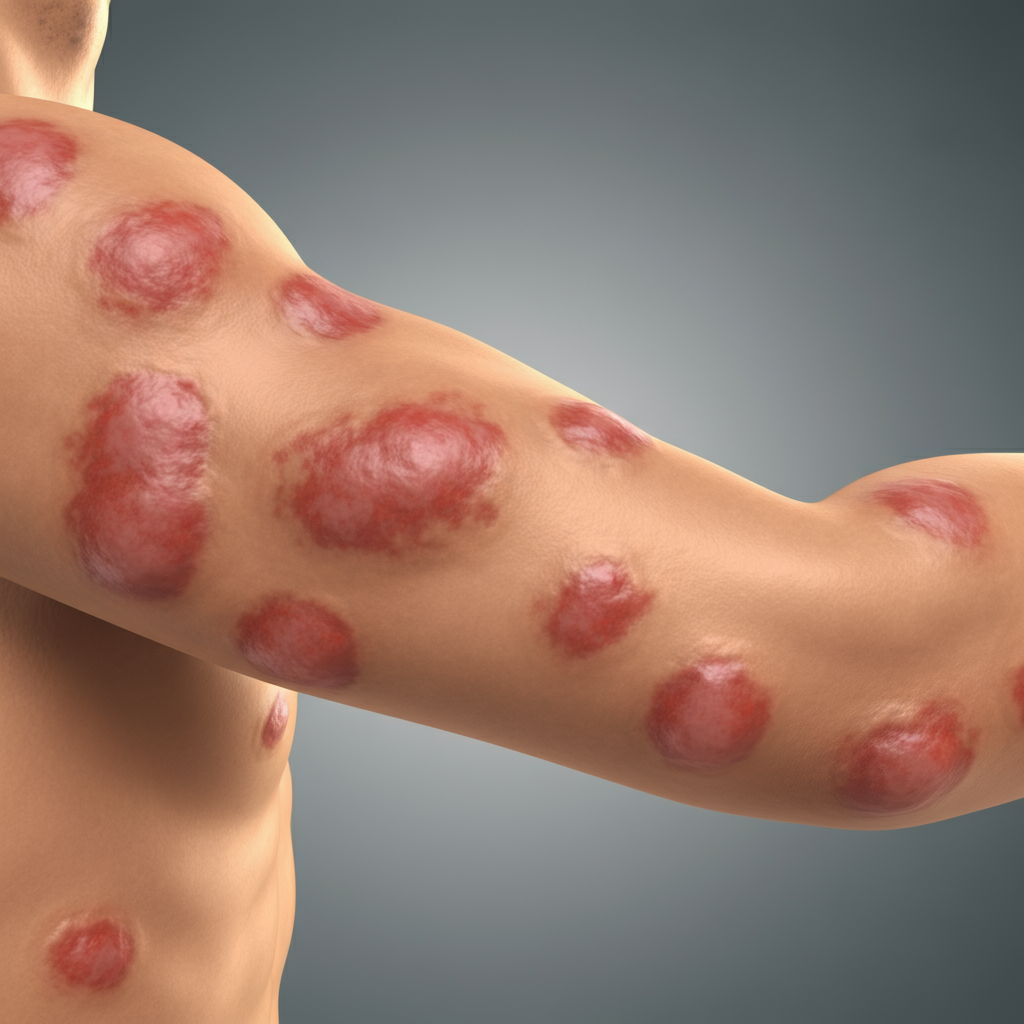
Measles presents as red spots or a rash starting from the face and spreading downward. It is often accompanied by fever, runny nose, and conjunctivitis.
Prevention:
- MMR vaccine (measles, mumps, rubella).
9. Ringworm
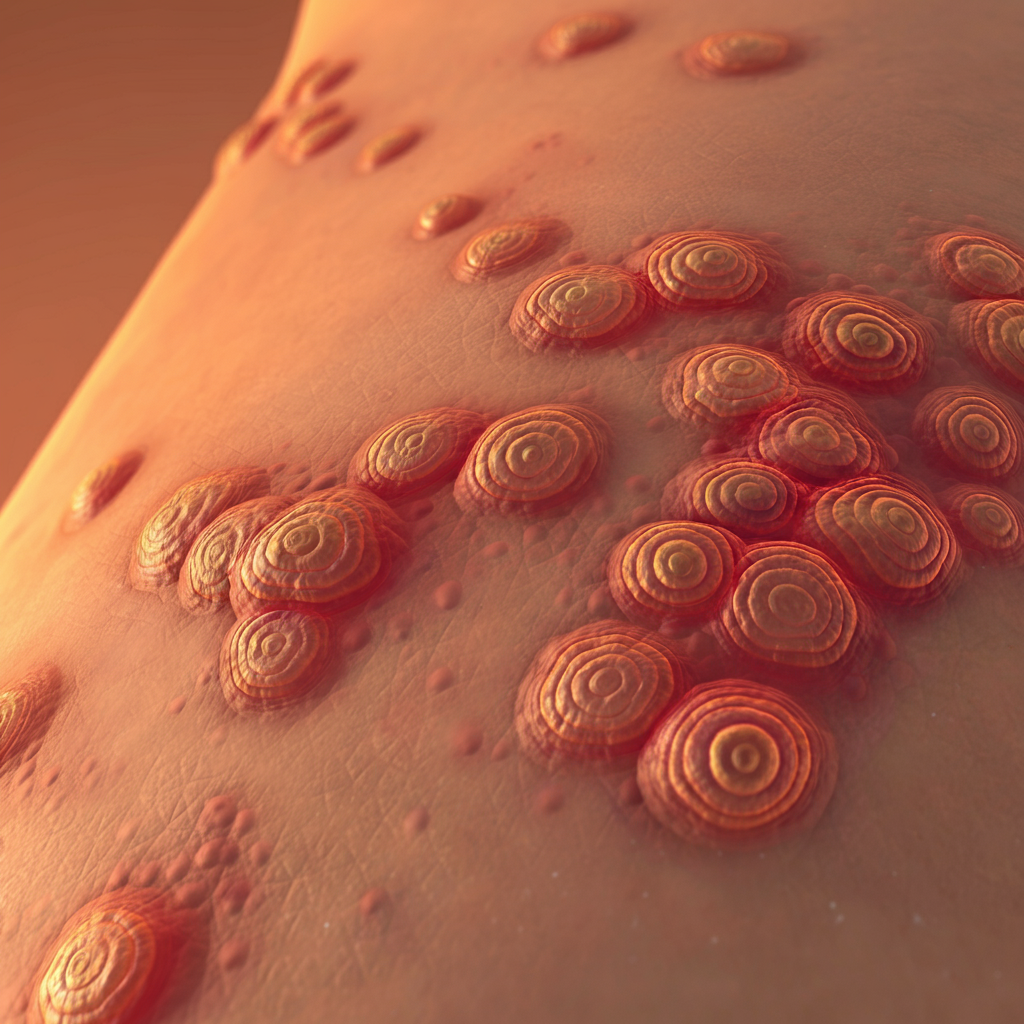
Despite its name, ringworm is caused by a fungus, not a worm. It appears as circular, red, scaly patches that may itch or spread over time.
Treatment:
- Antifungal creams like clotrimazole.
- Prescription medication for severe cases.
10. Heat Rash (Miliaria)
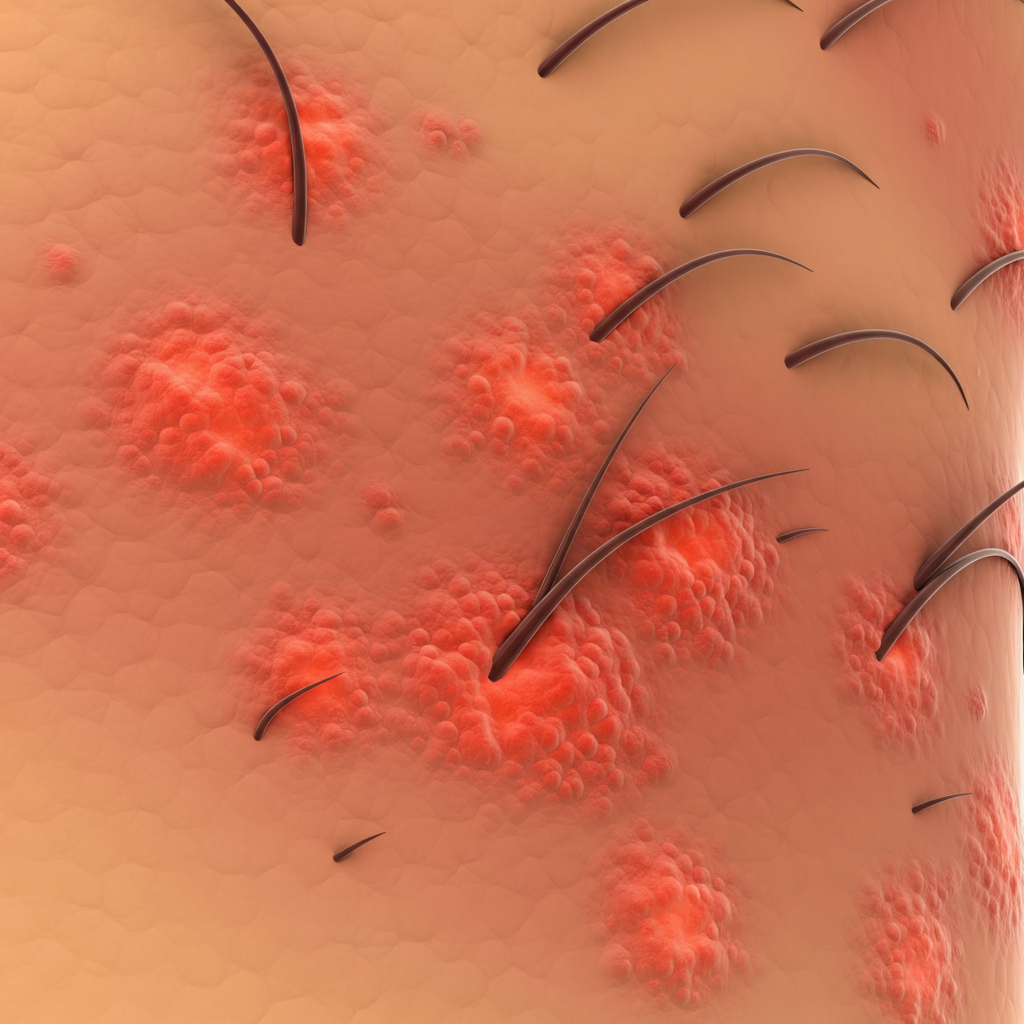
Heat rash occurs when sweat ducts are blocked, causing red spots and small, prickly bumps. It usually develops during hot, humid weather.
Prevention:
- Wear loose, breathable clothing.
- Keep your skin cool and dry.
Best Skin Supplements for Radiant Skin
To maintain healthy skin and support recovery from red spots, certain supplements can promote healing from the inside out.
- Vitamin C: Boosts collagen production and fights free radicals.
- Vitamin D: Plays a crucial role in reducing skin inflammation.
- Omega-3 Fatty Acids: Improves hydration and minimizes redness caused by inflammation.
How to Use a Skin Supplement Checker
A skin supplement checker is a helpful online tool for ensuring your supplements meet your specific skin needs.
- Enter your skin concerns (like redness or dryness).
- Search for a list of recommended vitamins tailored to your goals.
- Use the suggestions to choose high-quality supplements.
Understanding Skincare Ingredient Analysis
Knowing what’s inside your skincare products is crucial for keeping your skin healthy. Avoid harmful substances like parabens and sulfates, which may worsen sensitivity. Instead, look for beneficial ingredients like hyaluronic acid, niacinamide, or aloe vera for hydration and calming effects.
People Also Ask
What causes red spots on the skin that itch?
Itchy red spots are often caused by conditions like eczema, allergies, hives, or fungal infections. Identifying the trigger is key to effective treatment.
How can I get rid of red spots on my face fast?
Start with gentle skincare products containing salicylic acid or benzoyl peroxide. For conditions like rosacea or psoriasis, consult a dermatologist for personalized advice.
Are red spots on the skin a sign of a serious condition?
While many causes are harmless, some could indicate a more serious issue like measles or an autoimmune condition. Seek medical attention if the spots persist or worsen.
Comparing Treatment Options
| Treatment | Pros | Cons |
|---|---|---|
| Over-the-Counter | Affordable, easily accessible | May not address severe conditions |
| Prescription Creams | Effective for specific diagnoses | Possible side effects, requires doctor |
| Lifestyle Changes | Natural, prevention-focused | Results take time to show |
Personal Stories
“After switching to fragrance-free moisturizers and using antihistamines for my hives, my skin feels calm for the first time in years!” says Jenna, 34. Another reader, David, shared his success with omega-3 supplements to reduce redness caused by eczema.
Practical Steps to Healthier Skin
Red spots on the skin shouldn’t be ignored, but they don’t have to be feared either. By identifying the root cause, seeking appropriate treatment, and adopting healthy skin habits, you can achieve clear, comfortable skin.
Explore these tips, consult with your dermatologist as needed, and take charge of your skin health today!
